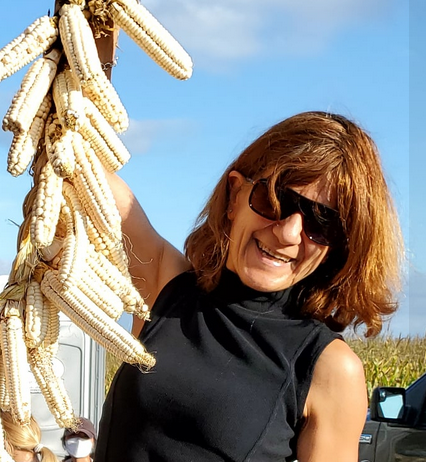Importance of Native American Heritage Month

Rossitza Ivanova
November 13, 2022
As our semester rolls into November – the National Native American Heritage month – the editor of The Royal Purple has invited me to share my thoughts on the importance of this designation and on ways to acknowledge it. Given that as teachers we learn a lot from listening to students, I reached out to my current classes to ask them the same questions: “Why do you think it is important to have Native American Heritage Month? And how can we celebrate the Native Americans on Native American Heritage Month?” Since I teach First Year English, most of my students are experiencing their first semester at UWW right now, and it felt important to engage them in a conversation about national celebrations of diversity, history, and culture. What started as a side discussion yielded reactions that are meaningful and compelling, and it’s an honor to share them here and reflect alongside them.
Pouring over more than 60 responses, I am excited and humbled by the multi-faceted and thoughtful ways in which students underscore the significance of our National Native American Heritage month. Students, for example, feel that it is important to recognize that “Native people were first on the land” and that we need to “know more about who came before us.” They even point out to a particular Wisconsin “duty” to recognize Native lands and peoples: “Wisconsin is very Native,” states Tony R., while Zanthia L. adds: “being from Baraboo, WI we have a lot of natives; we are close to native lands and we want to respect that.” I concur wholeheartedly, and believe that November celebrations of Native American heritage should be opportunities to celebrate the indigenousness of Native peoples and nations; in other words, this month allows us to calls attention to their particular status as the first or original peoples of these lands, and to hopefully acknowledge unique indigenous rights that come with this status.
Students also insightfully recognize this month as an opportunity to re-examine the history of our country. As Alyse K. writes, “We always put Christopher Columbus in the spotlight, when in reality, it should have been Native Americans … they had a lot taken away from them so [a national month recognition] is the least they deserve.” The US government “stole land, sent kids to Indian Boarding Schools to change them…, put a pipeline in their lands that destroyed their water… [The very least we can do] is give them a month,” continues Grayson B. Students here demonstrate awareness of history and a sense of responsibility that many US political leaders have rarely been able or willing to show. Indeed, there have been few efforts on our national political scene to publicly acknowledge the historical harm done to indigenous peoples, let alone to express formal apologies. So, as we celebrate National Native American Heritage month, let’s follow our students’ cue and also recognize injustices in past and present policies toward indigenous peoples in the US. Using the opportunity to reflect on mistakes does not mean to live with a sense of historical guilt, but to remember that historical trauma exists. We want to recognize that facing our history – both its bright and its somber moments – is the basis for understanding, forgiveness, and healing in the present.
Ultimately, the majority of my students see the National Native American Heritage month as an invitation to “honor,” “recognize,” “appreciate,” “celebrate,” and “show support” for Native peoples and traditions. It is also a good time to “learn” and “raise awareness,” and thus the best way to celebrate Native Americans this month (and always) is to participate in educational events so that we can all learn more, and more profoundly, about our indigenous
neighbors, peoples, and nations. Our very own student organization Native American Cultural Awareness Association (NACAA) has organized many celebratory and educational events this month, and it also conducts weekly meetings so that we all learn – as the NACAA moto reminds us – to be “honoring the past, serving the present and changing the future.”












